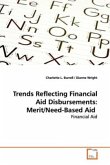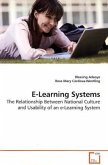This ground-breaking text profiles a college
population often misunderstood: Transgender students.
Using a broad range of self-identifying terms,
"transsexual," "tranny boy," "genderqueer," "male to
something else," "two spirit," "third gender" and
"still defining," this study's participants gave
voice to a definition and characteristics of
genderism. They described a campus dictated by a
binary gender system with four components: a social
labeling process used to categorize all individuals
into rigid male or female identities; accountability
for conforming to binary gender norms with requisite
rewards and punishments; privileging of
non-transgender persons; and invisibility, isolation
and inaccessibility of transgender identities. For
university faculty, administrators and students, this
unique work provides both a theoretical foundation
for understanding systemic oppression related to
transgender identities as well as a blue print for
campus change. This study was recognized with a GLBT
Knowledge Community Research Award from the National
Association of Student Personnel Administrators and
Scholar-Activist Award from the American Educational
Research Association.
population often misunderstood: Transgender students.
Using a broad range of self-identifying terms,
"transsexual," "tranny boy," "genderqueer," "male to
something else," "two spirit," "third gender" and
"still defining," this study's participants gave
voice to a definition and characteristics of
genderism. They described a campus dictated by a
binary gender system with four components: a social
labeling process used to categorize all individuals
into rigid male or female identities; accountability
for conforming to binary gender norms with requisite
rewards and punishments; privileging of
non-transgender persons; and invisibility, isolation
and inaccessibility of transgender identities. For
university faculty, administrators and students, this
unique work provides both a theoretical foundation
for understanding systemic oppression related to
transgender identities as well as a blue print for
campus change. This study was recognized with a GLBT
Knowledge Community Research Award from the National
Association of Student Personnel Administrators and
Scholar-Activist Award from the American Educational
Research Association.








